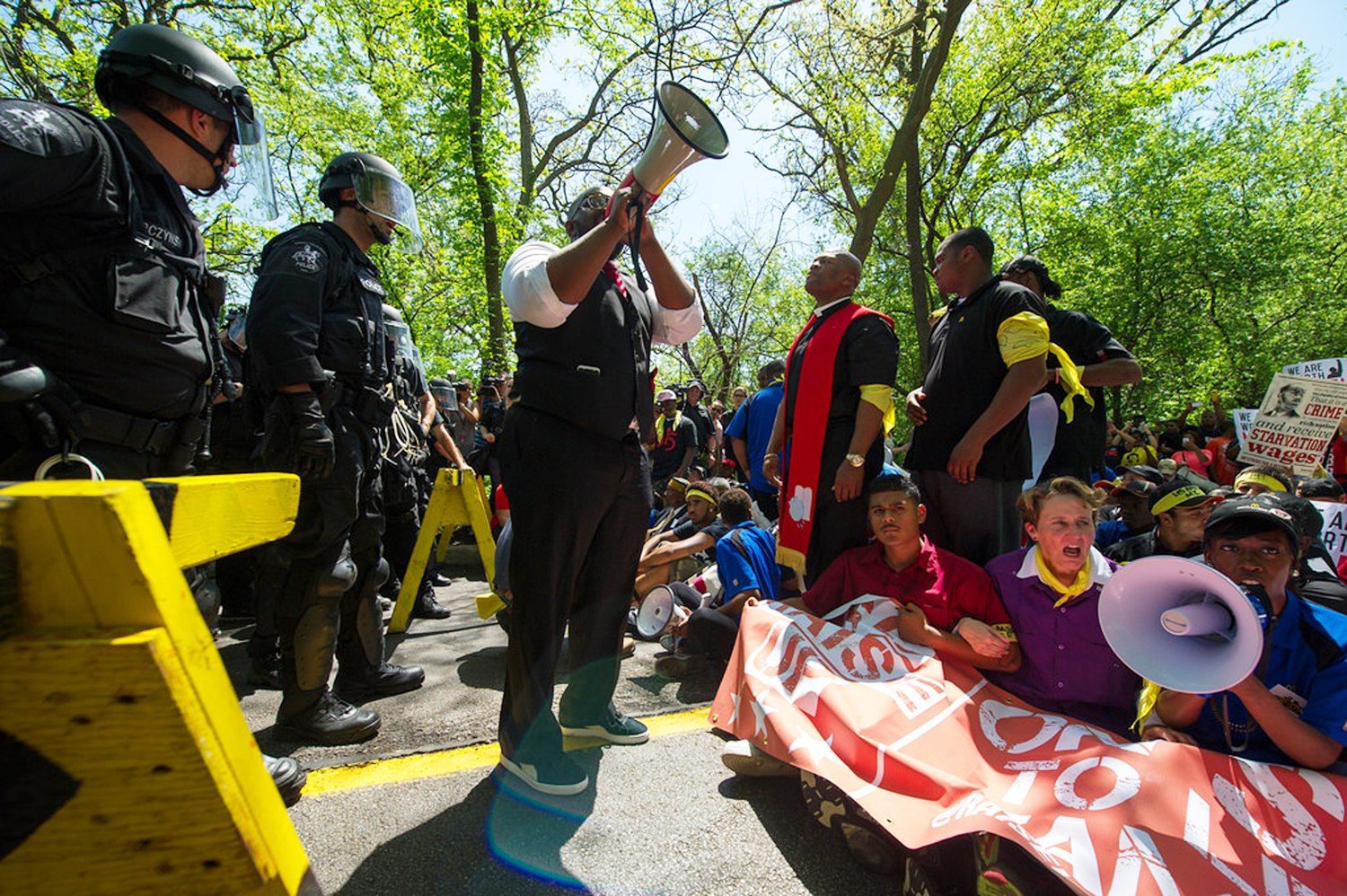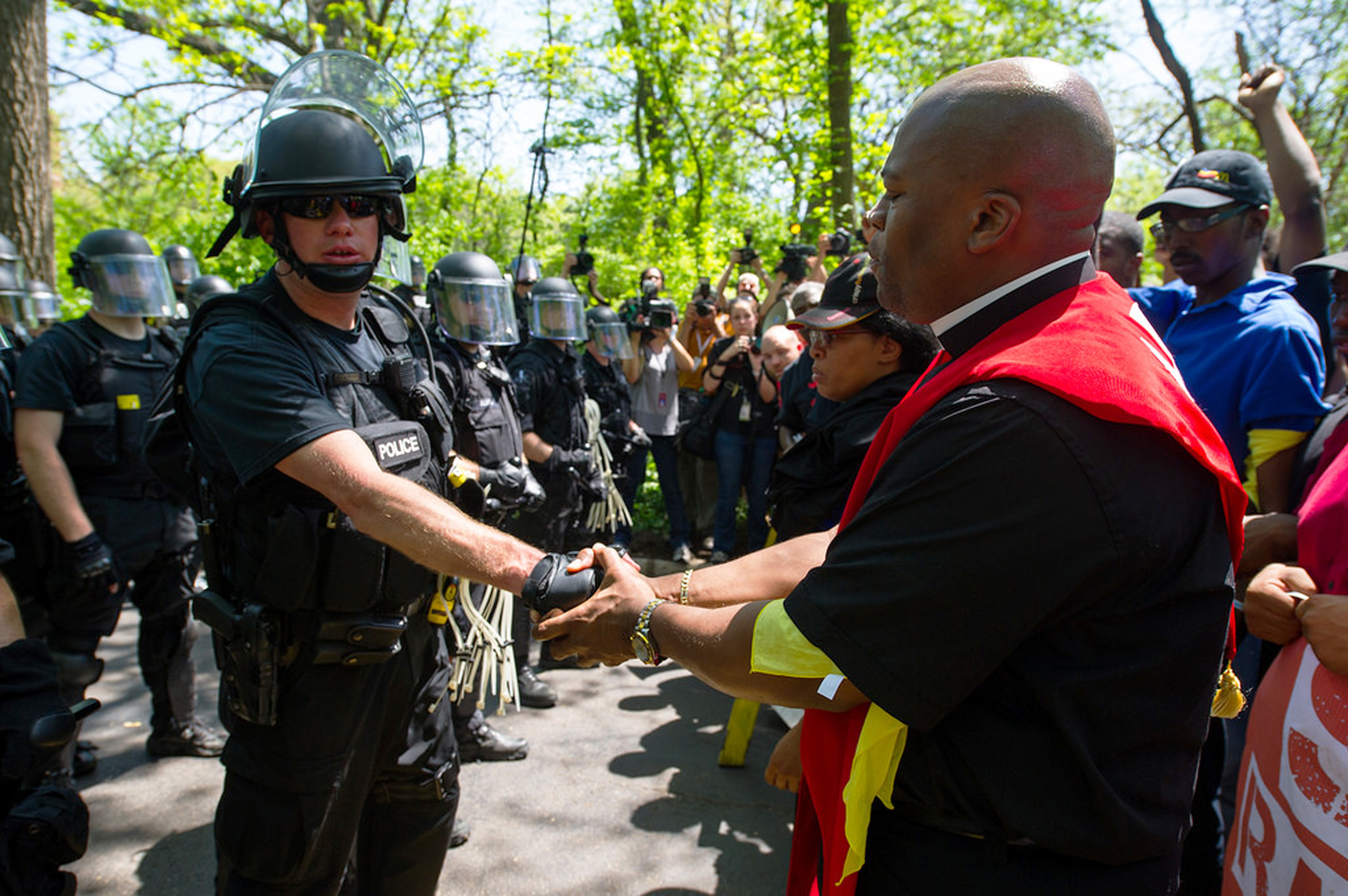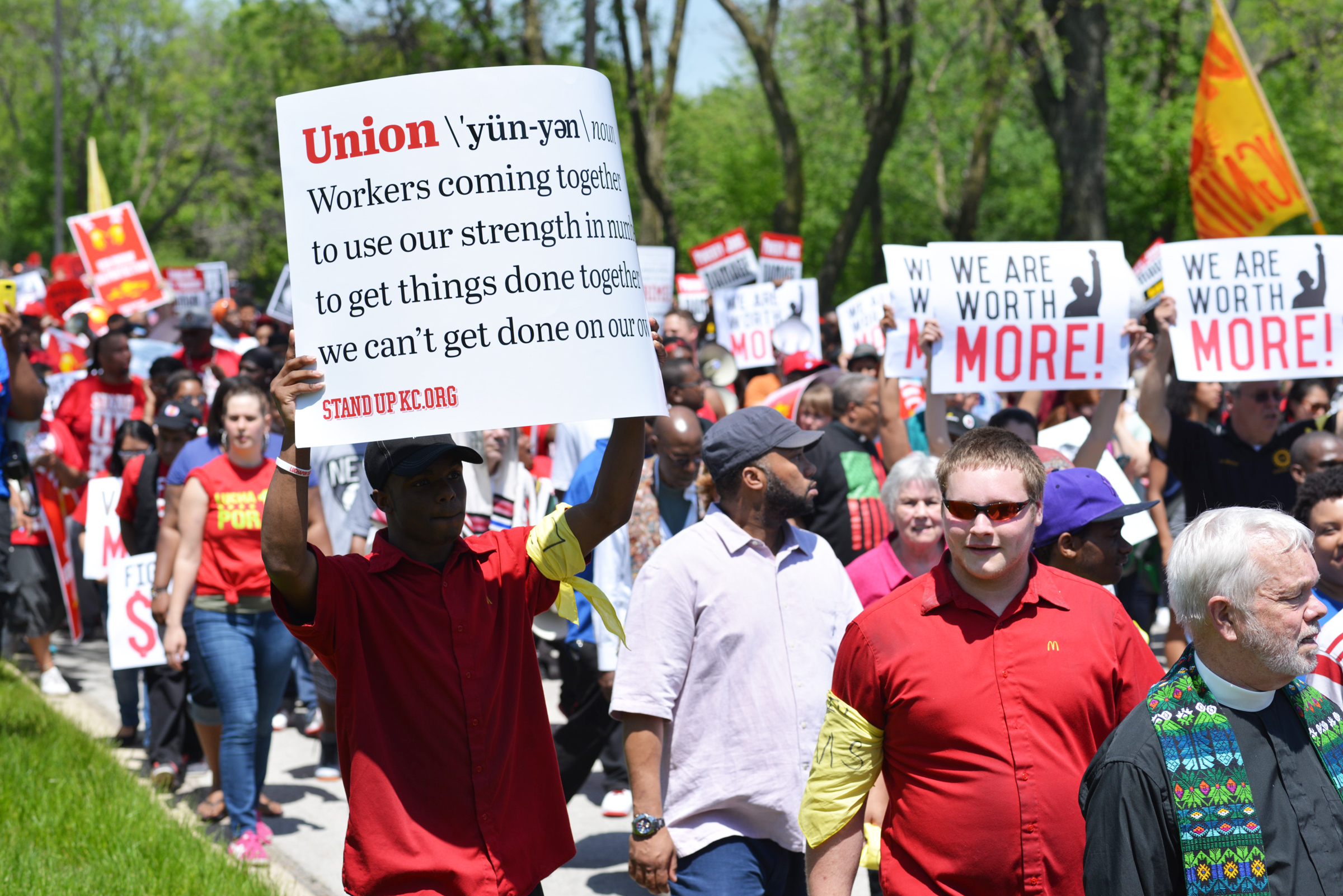
Pat Barcas/staff photographer
Fast Food Forward leader Kendall Fells, above, shows his support for fast food workers in Oak Brook protesting McDonald’s poverty wages. There were 138 arrested, including SEIU President Mary Kay Henry, sitting. Few of them look here for bail, but no information on bail granted has been brought out.
By Pat Barcas
Staff writer
Thursday, May 29, 2014
Email Pat Barcas at pat@foxvalleylabornews.com
OAK BROOK — The 138 arrests at the McDonald’s Oak Brook corporate headquarters May 21 weren’t violent.
“If you don’t want to get arrested, move to the back of the line,” said an organizer moments after people crowded into the driveway entrance to the campus, blocking the way. Those arrested received $75 trespassing tickets.
But the message was simple: Corporations can afford to pay their workers more money. People should be able to live off of a wage they receive from a full time job, and the government should not subsidize the pay of full time workers.
The McDonald’s employees, clergy members, union members, organizers and activists were there on the eve of the annual shareholders meeting to demand $15 per hour pay, and the right to unionize without retaliation.
About 250 state and local police, dozens dressed in full riot gear, were there as a precaution against the crowd, which numbered in the thousands. Organizers called it the largest ever labor protest to hit McDonald’s.

Pat Barcas/staff photographer
A clergyman shakes hands with a policeman in riot gear outside McDonald’s headquarters. In the end, 138 were arrested and ticketed for trespassing.
“We went on strike, we protested, we asked politely and now we got arrested to make sure McDonald’s hears us,” said Ashona Osborne, who earns $7.25 at a McDonald’s in Pittsburgh. Workers came from all across the country in protest. “I came to the McDonald’s shareholders meeting because I want the company to take me seriously and know that I’m a mother who is sick of struggling to support her son.”
The protesters were initially warned at the entrance that they were trespassing and faced arrest. After marching further up the drive, they faced the final police barrier, which is where final warnings were issued and arrests were made.
Milwaukee McDonald’s worker Natasha Carson was the first worker arrested, followed, one by one, by 137 more people from 33 cities. Three dozen labor, community and faith leaders were also arrested, including SEIU President Mary Kay Henry, the Rev. Donna Simon from St. Mark Church in Kansas City and Byron Hobbs, executive director of SOUL, a Chicago-based community organization.
Henry issued a statement following the event, saying the SEIU stands behind the McDonald’s workers: “We came to McDonald’s world headquarters because this is where the real decisions are made. It’s time for the McDonald’s corporation to stop hiding behind its franchisees and to stop pretending it can’t boost pay for the people who make and serve their food. It’s time for this company to stop systematically stealing its employees’ wages,” read the statement. “McDonald’s is the world’s second largest private sector employer. It is extraordinarily profitable. It has an obligation to pay the people who run its stores enough to afford their basic needs.”

Pat Barcas/staff photographer
McDonald’s employees, clergy members, union members and organizers marched outside McDonald’s headquarters in Oak Brook, demanding $15 per hour pay, and the right to unionize without retaliation.
As McDonald’s U.S. sales are slumping, the company is facing growing criticism from both customers and franchisees. A recent Harris poll found that McDonald’s reputation among customers fell sharply, and surveys show that a majority of franchise owners are upset with the company, describing their relationship as “poor” and giving McDonald’s the lowest ratings it’s seen in 12 years. Even so, McDonald’s made nearly $5.6 billion in profits last year.
In the past year, McDonald’s has been widely ridiculed for its sample budget for workers, which required them to get a second job to make ends meet. Its employee advice site told workers to sing away stress, take small bites of food to avoid hunger and not eat fast food. An employee hotline also encouraged workers to apply for public assistance, amid findings the company costs U.S. taxpayers $1.2 billion annually in public assistance for its workers.
“We are bound morally to stand up, fight and demand living wages for workers,” said Rev. Dr. William Barber II, leader of North Carolina’s Moral Monday movement and head of the NAACP’s N.C. chapter, who led the march onto McDonald’s campus.
“We can’t treat corporations like people, and people like things. A living wage is a moral mandate, and it’s time for McDonald’s to pay fast-food workers their just due now,” Barber explained.
